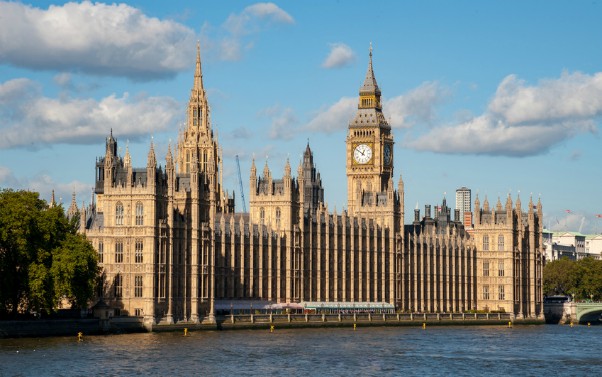
A minister has sidestepped a question on whether the government will include a bill to reform the Mental Health Act (MHA) in next month’s King Speech.
With the speech on 7 November marking the start of the last parliamentary session before the next election, it is the final chance for the government to reform the MHA in accordance with a commitment in the 2019 Conservative Party manifesto.
She referenced the fact that the government had failed to respond to the report of the joint committee on the draft Mental Health Bill, nine months on from its publication.
Government departments are expected to respond to select committee publications within two months, with delays of more than six months permissible only in “exceptional circumstances”.
The draft bill set out the government’s plans for reforming the MHA, which the joint committee subjected to scrutiny, reporting that it supported the government’s intentions but wanted to see the proposed legislation strengthened.
Minister sidesteps question on Mental Health Bill
During parliamentary questions on suicide prevention last Tuesday (17 October) Allin-Khan, a member of the joint committee, asked Caulfield: “Since the joint committee on the draft Mental Health Bill published our report in January we have heard nothing from the government, so will the minister today commit to including reform of the Mental Health Act in the King’s Speech?”
However, Caulfield did not address the question, confining her answer to Allin-Khan to issues relating to suicide prevention.
Government plans to reform MHA
The draft bill proposed to:
- Tighten the criteria for detention under the MHA to address the rising rates of detention and its disproportionate impact on black people.
- Shorten detention periods.
- Replace the nearest relative role with that of nominated person, enabling a person to choose who represents them while detained at any time when they had capacity or competence to do so.
- Toughen conditions governing when clinicians can compulsorily treat detained patients.
- Create a right to statutory care and treatment plans for certain detained patients.
- Extend the right to an independent mental health advocate (IMHA) to informal patients.
- Give detained patients greater access to the mental health tribunal.
- Tighten criteria for the use of community treatment orders.
Find out more in this summary by Community Care Inform legal editor Tim Spencer-Lane.
Their exchange came on the same day that a group of campaigners, led by the charity Mind, convened outside Parliament to question the government’s failure to publish the bill.

Campaigners call for Mental Health Bill to be published (credit: Mind)
Nearly 35,000 people have signed a petition, drawn up by Mind, calling on the government to reform the MHA before the next election.
Mental health failings outlined by CQC
The charity linked the issue to significant failings in the mental health system revealed in last week’s State of health and care report from the Care Quality Commission (CQC).
The regulator said a lack of capacity in community care services was leading to long waits for care, during which people deteriorated and fell into crisis. This was putting significant pressures on inpatient services, leading to people being cared for in inappropriate environments, such as in emergency departments.
The proportion of NHS or independent mental health services rated inadequate or requires improvement for safety rose from 38% to 41% from 2021-22 to 2022-23, with the CQC citing issues including the ongoing use of mixed-sex wards and high use of restrictive practices.
It also raised concerns about the recruitment and retention – with one in five mental health posts vacant last year – and the fact that 770 people were in inappropriate out of area placements in July 2023, despite a government commitment to end these.
‘The human cost of delay’
“This report lays bare the real human cost of political inaction and delay,” said Mind’s associate director of policy and campaigns, Vicki Nash.
“The UK government is running out of time to pass the Mental Health Bill, with the upcoming King’s Speech its final chance to commit to the changes that will strengthen rights and protections for people before the next general election.
“Politicians cannot continue to stand by while people with mental health problems and their loved ones are being repeatedly failed by a system meant to care for them.”



 Bournemouth, Christchurch and Poole
Bournemouth, Christchurch and Poole  Hampshire County Council
Hampshire County Council  Oxfordshire County Council
Oxfordshire County Council  South Gloucestershire Council
South Gloucestershire Council  Wokingham Borough Council
Wokingham Borough Council  Webinar: building a practice framework with the influence of practitioner voice
Webinar: building a practice framework with the influence of practitioner voice  ‘They don’t have to retell their story’: building long-lasting relationships with children and young people
‘They don’t have to retell their story’: building long-lasting relationships with children and young people  Podcast: returning to social work after becoming a first-time parent
Podcast: returning to social work after becoming a first-time parent  How managers are inspiring social workers to progress in their careers
How managers are inspiring social workers to progress in their careers  Workforce Insights – showcasing a selection of the sector’s top recruiters
Workforce Insights – showcasing a selection of the sector’s top recruiters 

 Facebook
Facebook X
X LinkedIn
LinkedIn Instagram
Instagram
The wards in one hospital are understaffed with a disproportionate amount of temporary staff employed. Permanent staff are very underpaid and their goodwill and consciencous attitude is eroded with the much higher wage the temporary staff receive in comparison. A special hospital has closed wards because of lack of staff and this stops medium secure hospitals passing on high secure patients to more appropriate hospitals and service users and staff suffer as a consequence